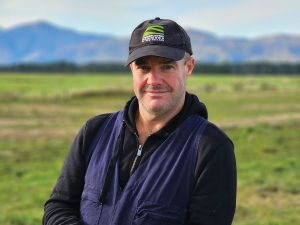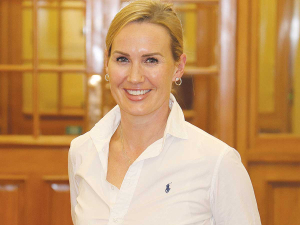Claims that some Southland farmers were invoiced up to $4000 for winter grazing compliance checks despite not breaching rules are being rejected by Environment Southland.
Last week, Southland Federated Farmers president Jason Herrick stated that while farmers understand the need for good environmental practices and compliance, but "being invoiced for a visit where there are no breaches or problems is incredibly frustrating".
"One farmer I spoke to was charged for nine hours of staff time for a compliance visit where everything was fine. It's absolutely ridiculous."
However, Environment Southland hit back saying Herrick's comments were inaccurate.
Compliance manager Donna Ferguson says cost recovery invoices are only issued to farmers where there has been a confirmed breach of a rule.
"We undertake cost recovery so that ratepayers do not pay for the cost of investigating and undertaking enforcement action where non-compliance occurs."
This year, 75 incidents had been logged, of which 49 have been fully investigated by warranted compliance officers.
Read More:
Of the completed investigations, 28 farmers were contacted and advised that no further action or cost recovery was required as they were found to comply with the rules.
Another 21 incidents have been have been investigated where non-compliances were confirmed. Outcomes have ranged from advisory letters to more formal enforcement. The remaining 26 incidents were still under investigation.
"The winter grazing period runs from 1 May to 30 September and each year, we carry out three aerial surveys between June and August as well as responding to reported incidents and monitoring consent conditions," says Ferguson.
But Herrick told Dairy News that "what Environment Southland are saying in their media release simply doesn't align with the reality on the ground".
"I've spoken with farmers in Southland who have been visited by the council following a flyover.
"No major issues were found during the inspection, only misunderstanding around the rules, particularly around buffers and critical source areas - and then they get a huge bill in the mail six weeks later for cost recovery. I've seen the invoices."
Federated Farmers now wants Environment Southland taking more of an educational approach to winter grazing compliance.
"I've heard from farmers in other regions like Otago, where councils are managing compliance from a very different mindset," says Herrick.
"They've taken more of an educational approach, helping farmers understand what their obligations are and supporting them to lift their standard where needed.
"I think Environment Southland should follow suit. That would help them build more trust with farmers down here, and quite possibly achieve even better compliance."
But Ferguson says Environment Southland's approach to assessing winter grazing compliance is education-first.


















